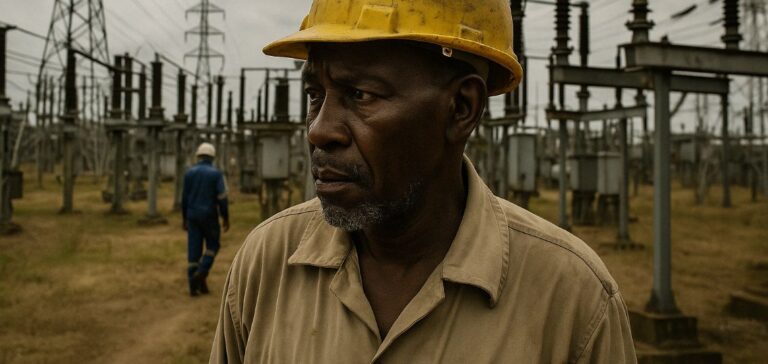Recent political and economic adjustments by the United States and the European Union are substantially reshaping the international financing landscape for Africa’s energy transition. With the United States withdrawing from the Paris Agreement and Europe significantly cutting aid, African energy projects now face a drastically altered financial reality, placing the private sector at the forefront.
Drastic reduction in American aid
Under the Trump 2.0 administration, the United States has officially abandoned its climate financing commitments in Africa, resulting notably in the termination of the Power Africa program, initially aimed at expanding electricity access on the continent. This decision entails suspending aid within the international Just Energy Transition Partnership (JETP), primarily affecting South Africa, whose shift away from coal heavily depended on these funds. The immediate impact has been the recent blockage of a $500 million disbursement from the Climate Investment Funds (CIF), an institution linked to the World Bank, under American pressure. Additionally, the United States Export-Import Bank (Eximbank), historically limited in its African engagements, plans to cease all support for renewable energy projects, redirecting its strategy towards fossil fuel projects.
Reduction in European funding
In Europe, the questioning of the European Green Deal by certain political and economic actors, combined with findings from the recent Draghi report on competitiveness, has prompted the European Union to reconsider the structure and priorities of its external funding. Although the European Union has reaffirmed its commitment to Africa through initiatives like the “Global Gateway” and the “Scaling up Renewables in Africa” campaign, budgetary constraints exacerbated by the urgent need to increase military spending are significantly reducing public aid. Several European countries have already announced cuts of up to 40% in their international aid budgets, reinforcing the necessity for increased private sector involvement in African energy projects.
Challenges of a new funding structure
The marked reduction in international public funding is forcing Africa towards greater dependence on the private sector—a transition that poses significant challenges for African economies. Historically, less than 2% of global investments in renewable energy have benefited Africa due to projects often being deemed insufficiently profitable by private investors. The lack of bankable projects in sub-Saharan Africa, exacerbated by factors such as political instability, currency risk, weak energy infrastructure, and financially fragile national electricity companies, severely limits the continent’s attractiveness to international private investors.
Impact on Africa’s climate commitments
These financial shifts also risk influencing Africa’s commitments to reduce greenhouse gas (GHG) and methane emissions, obligations crucial for international trade, particularly with Europe. Many commitments made by African countries at the recent continental climate summit remain conditional on international funding mobilization. Given the reduction in external funding, African nations may reconsider or delay their Nationally Determined Contributions (NDCs), required before the COP summit scheduled in Brazil in November 2025.
The American withdrawal and European adjustments raise questions regarding the short-term viability of Africa’s energy goals. Countries on the continent will thus need to rapidly reassess their financial strategies to sustain their energy transition ambitions.






















